Select from the following services
by communications volunteer, Leesa
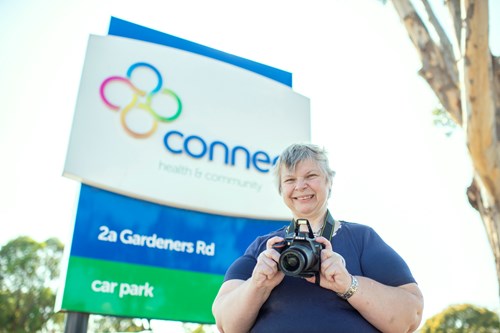
Hello everyone, my name is Leesa, and I am volunteer at Connect Health & Community.
World Cerebral Palsy Day is on 6 October, and I thought it would be a good opportunity to tell about my life living with Cerebral Palsy.
From birth to now, it has not been easy living with Cerebral Palsy, but I have enjoyed my life and proving people wrong.
My journey
So let’s start my journey.
Before I came in to this world no-one knew that I was going to have the disability called Cerebral Palsy (a group of permanent movement disorders that appear in early childhood). My poor Mum was in labour on 24 December (1970) and my Dad rang the hospital to tell them that my Mum was having labour pains. One of the nurses said, “Bring your wife in now.”
When they got to the hospital, Mum was in bed with a lot of pain. The doctor came in to check on my Mum and said that he would not deliver the baby before 26 December, because Christmas Day was tomorrow and he wanted to spend it with his family. Of course, Mum was in a lot of pain during Christmas Day.
The next day, because Mum was sick and in so much pain, I was born by caesarean while Dad was waiting in the waiting room - like they did in those days.
The nurse came out to see my Dad. She told him, “Your daughter and wife are very sick at the moment, and you could lose both of them. We are doing the best we can for both them.”
The nurse told my Dad, “Your daughter has lost a lot of oxygen due to the birth and I think she has a disability called Cerebral Palsy.” My Dad asked, “what is that?” She replied, “Your daughter has some brain damage and it is affecting her right side”.
Dad asked why this had happened and the nurse replied, “Because you wife was in labour for too long because the doctor didn’t want to miss his Christmas Lunch, your daughter lost a lot of oxygen and came out blue.”
Dad was so angry about it and asked to see the doctor. But by this stage he had left the hospital and jumped on a plane to another country. The nurse told my Dad that if he tried to take it to court, she could not tell the judge what happen because she would lose her job. “You will not win,” she said.
Royal Children’s Hospital
I was so sick that the other doctors couldn’t transfer me to the Royal Children Hospital for two days because they thought I might die in ambulance. By this stage my Mum still didn’t know what was happening to me. Dad used to tell her that I was down in the new babies’ room, but I had been transferred to the Royal Children’s Hospital.
My poor Dad had to go to two hospitals every day for about 10 days until my Mum was well enough to go home. Every day when Dad visited Mum, she kept asking, “Where is Leesa? I haven’t seen her yet.” Dad eventually told Mum what had happened.
When Mum was allowed to go home, they called into the Royal Children’s Hospital to see me, but I couldn’t be cuddled yet because I was in humidity crib. When I was born, I was 8 pound, but when I was at the Royal Children’s Hospital, I dropped down to 6 pounds, so it was lucky that I had a good weight to start with. That’s partly why I am still around today, that and my parents looking after me.
I stayed in hospital for six months until I could go home. Every day Dad would bring Mum in to see me, then Dad would pick Mum up at the end of the day. Before I came home the doctors told my parents that I should go into a ‘special’ home and leave me there because I wasn’t going to walk or talk. My parents just looked at the doctors funny and both said, “No, she is coming home with us!”
My Dad had started his own business about two years before I came along, and my Mum didn’t have a driver’s licence. Looking back now, I wonder how my Dad managed it all.
Therapy
After I came out of hospital I had to go to the Royal Children’s Hospital three times a week for physiotherapy until I was about six years old. I had to wear callipers to help me walk and I had to wear them in bed until I was about four years old.
One day when I was two and half years old, I was at the hospital for physiotherapy and while my Mum was down at the café having a break, I started to take a few steps of walking.
When she came back, I gave her a surprise and started to take a few more steps again. Mum just broke down and cried because the doctors had told my parents I would never walk and I would be in a vegetative state all my life.
My parents always helped me achieve things. It might take along to time do it, but in the end I get there. Now I think that if my parents didn’t push me, I wouldn’t be able to do anything, and I say to myself even more, “No pain, no again!”
I had to start private speech therapy when I was two years old because I couldn’t talk at all. If you know me now, I don’t shut up and even talk in my sleep!.
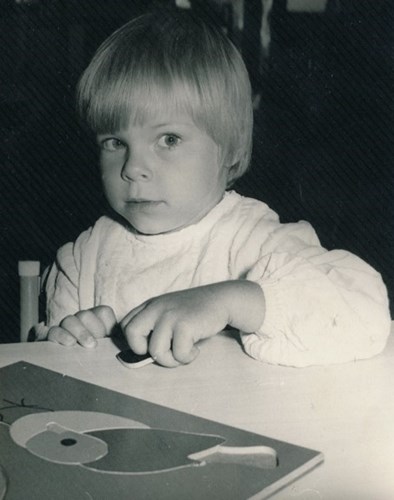
I had speech therapy twice a week until I was six years old. Then I was doing the speech therapy once a week for a long time. I had speech therapy for ten years, time-to-time it was getting harder and harder. At the end of each year I was getting tired because I was going to school, where I had to get up at 6am and leave home about 7am on the bus until 1981.
I was having physiotherapy at school twice to three times a week and speech therapy after school once a week. Every Christmas holiday I was just looking forward to sleeping in and doing whatever I wanted …unless Mum wanted me to do things with her or my brothers.
My brothers
I have two brothers. Growing up, the oldest of my brothers really didn’t like me. He was born when I was four. I could understand how he felt because my parents gave me a lot of attention. My brother thought he missed out on a lot, but that wasn’t the case. My parents were very good to my brother. Even though I did take up a lot of time, they used to make time for him too. He told my parents that I should have died at birth and then he would get all the attention he needed. Dad and Mum were so angry when this happened that they told him to go to bed, “but apologise to your sister before you go to bed.”
I didn’t get an apology at all. I said to Mum and Dad, “Don’t worry about what he said. Maybe I am taking a lot of your time and money too.” Dad assured me that my brother was not missing out and got everything he wanted. In reality, I think he was ashamed of me being a person with a disability.
I have another brother who came along when I was nearly six years old. We were very close and still are. He treats me differently to my other brother, because he supports me in whatever I want do, and gives me the confidence to achieve things. One of the good things about my younger brother is that he always spoke about me with his friends, and if they couldn’t accept me, he wouldn’t be their friend anymore.
Schooling
I went to a regular kindergarten for two years, and I might have been all able to go to a regular school, but that didn’t happen.
I went to Yooralla Special School in Glenroy from six to nearly sixteen, when I eventually left school. Yooralla was okay for about five years because I needed physiotherapy and occupational therapy to help me walk better and to dress myself. Occupational therapy also helped with using my knife and fork so I could eat my meals properly.
I remember a when my Mum had a meeting with all my teachers, the physiotherapy and occupation therapist. It was the occupation therapist’s turn to say her bit about dressing and she said to Mum, “Leesa is really having trouble doing up buttons. I know how we can help Leesa by putting Velcro or zips on her clothing.” But Mum wasn’t impressed and said, “My daughter isn’t going to wear Velcro or zips on her clothing. I don’t care if she has to get up an hour earlier to get dressed by herself, because she has got to learn.”
My occupational therapist also wanted me to use a rocker knife, but Mum was against the idea because she wanted me use the same cutlery as them.
I was not happy at Yooralla after 5 years, because I didn’t learn anything after that. If you got to grade 6 that was all they could teach you. Then I got put back a year and I got bored and played up at school. I made one teacher cry because she could not handle me anymore.
I was quite often on ‘the red seat’ for that year, but I was just so bored that it didn’t worry me. I had had enough of this teacher and I still don’t know why I was put in that group.
My parents would get a phone nearly every day. My Dad said to the teacher, “Leesa is so bored of school because she is not learning anything.” Finally the teacher gave me some other work, which I enjoyed, and I didn’t cause any more trouble for the rest of the year.
The year I left Yooralla I was placed in a group of children who were nearly all integrated into high school. I started to be integrated to Hadfield High School in year 8 for an hour a week for a month to see if I could cope, and then it went to 2 hours a week for another month, By the end of the year I was doing three days week. The integration coordinator had a chat to my parents and asked if I would like to go full-time to the school, with no Yoralla.
“I was so happy and the integration coordinator started getting funding for me to have a battery typewriter. A visiting teacher came once a week for two hours and an integration aide helped me write in class.
Things started to go wrong
The next year I started the year fine. I was in year 9 and everything was okay until about May, when it all started to go wrong. Some of the students were being nasty to me because I was getting high marks in my tests and they thought I was cheating because I had my integration aide writing for me. But there was another looking over the top of me so I couldn’t cheat at all.
The next week I came back on Monday and I packed everything in to my locker as I always did before lunch. When I came back to go to next class everything was gone from my locker. I went to see the integration aide to see if she had my things for the next class.
She said to me, “No Leesa, we better go down to the integration coordinator and tell her about it”.
At the end they didn’t find any of my stuff, it was stolen. They rang my parents to come and to pick me up.
When my Mum got there she said to the integration coordinator, “I think I will keep Leesa home for week and by then you should know where her things are and she will be ok then.”
Well, I went back to school the next week but they couldn’t find anything, so they bought me a new typewriter and some new books. A few days went by and I got a rock thrown at my head, and I was knocked out.
The teacher’s aide came to my assistance and helped wake me up, but the other teacher didn’t do anything.
The teacher’s aide called my Mum to come and get me to take me to the doctor’s. Mum said to me, “Can you get all your things from your locker because you are not coming anymore.” I was so relieved that I wasn’t retuning to that again.
I went to the doctor’s and had a bad headache. All I wanted to do was go to bed.
While I was in bed a sleep, my Mum rang up another school to see if I could go there. I had an interview the next morning. Mum and I went down to the new school - I was hoping that I was going finish my school.
I got into the school for a trail run for three weeks to see if I could cope with it, and whether the children and teachers could cope with me. It lasted until I turned eighteen. I had to leave when I turned 18, but I got most year 9 subjects, year 10 and year 11 for computers.
Freedom as an adult
Since school I have achieve a lot. I left home and moved out on my own. At first my family was against leaving home for about 20 years, but I don’t want to talk about that. I am so glad my Dad and my younger brother are talking to me again. I know that my Dad and my brother feel guilty about it.
I have grown up more since having the falling out with my family and I am glad that I had my partner, David, and is family - and one of my aunties and uncles to support me through that time.
Between 1990 and 2001 I completed a number of courses, including a Certificate of Vocational Studies, Office/finance, and a few other computer courses.
Then I got into the disability field because I felt I could make a difference in the workforce. I completed two courses, an Advanced Certificate Residential and Community Services (Intellectual Disability) and a Diploma of Community Services (Psychiatric Disability Support).
I started a Bachelor of Community Service (Psychiatric Disability Support) at Deakin (Barrow campus), but I only completed one year because my note-taker was always too late to class to get in the room and I wasn’t allowed to tape record the session or photocopy notes.
Community work
After this, I became a volunteer at Monash Special Development School in Clayton. I loved this because I could help children with a disability to do things by themselves, including feed themselves and communicate by talking or using a bit of sign language. I did this for about fifteen years.
I had one special child that I used to look after for about six years because she was 12kg in weight and I think her parents had trouble coping with her and her disability. I had to bathe her and feed her. Feeding would take about two hours and then she would have sleep until it was home time.
After a while I decided it was time for a change and decided to find another volunteer job.
I have been doing volunteer work at Connect Health and Community for 11 years now.
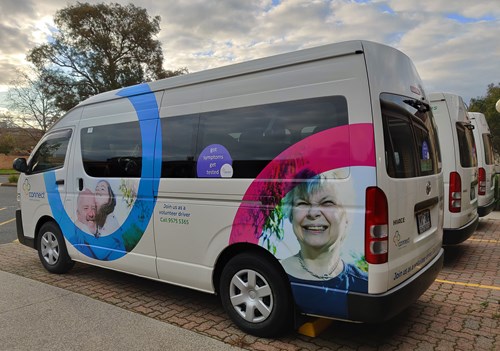
My first volunteer job at Connect Health & Community was the Brain Injury Group, helping clients with special needs with things like ten pin bowling, volleyball with balloons, strength training and going out in the community. I would help clients if they were in a wheelchair or needed help with walking, with lunch, cutting up their food, setting the table and clearing the table.
In the afternoon I would assist the staff with actives like card games and board games.
I also used my interest in photography and would take photos of clients (who gave me permission) taking part in activities and at the end of the year I would make DVDs of their photos as momentos they could keep.
My second job at Connect Health & Community was in the Volunteer Co-ordinator’s Office where I did computer input, filing, proofreading, photocopying and collating information packages about the different kinds of services. I would also help with check-in, administration and support of the Hydrotherapy groups.
My current volunteer job is in the Marketing and Communication team. I got this job by talking to one of the team members, Alex, about how I like taking photographs and making videos in my spare time.
She said, “My boss, Peter, is looking for someone like you, are you interested helping us?”
I replied, ”Yes, that would be great!” Peter came out after about 10 minutes, and Alex introduced me. The next week, I had two interviews with Peter, Alex and one of my bosses who was supporting me through the last interview.
Well, I got the voluntary job and I could not believe it, because it is what I’ve always wanted to do.
My boss Peter, and his assistant, Alex, gave me the chance to be on the team of Marketing and Communication.
At first, I wasn’t quite sure if I would get the job because of my disability. It affects my work, as I am a bit slower than able-bodied person. But, I am still here 18 months later and really enjoying it so much. It gave me the confidence to do this.
2020
It has been a bit different working from home because of the pandemic, but I still have a lot of contact with my team over email, phone and Zoom - I talk to Peter and Alex on video-call once a week.
In late February, the Connect Health & Community CEO, Andrea, picked me to be in an advertisement for the organisation in a magazine called ‘The Guide to Disability Support Tasmania and Victoria’.
I could not believe that I was going to be a magazine to promote Connect Health & Community! Then a few weeks later I was chosen to have my photo taken again to go on the Connect Health & Community bus. Now the bus is finished and driving around the community. I am so proud.
I am so pleased that Peter and Alexandra are very supportive of me. It means a lot because I have been put down a lot because of my disability, but I don’t take crap from anyone.
I just keep on trying to get what I want and I will not give up. That is why I like the song, ‘Don’t Give Up’ by Peter Gabriel and Kate Bush …it reminds me of me.
A youth mental health initiative developed with students during Victoria’s lockdowns, is hoped to help reduce the stigma surrounding mental health issues and encourage teens to seek help early.
Read MoreOur Health Promotion team is supporting early learning centers through the Achievement Program, an initiative that helps services create a healthier environment for their students, staff and families.
Read MoreThis Children’s Week, we asked our paediatric team to share some of their favourite activities for kids that embrace the importance of play for a healthy lifestyle.
Read More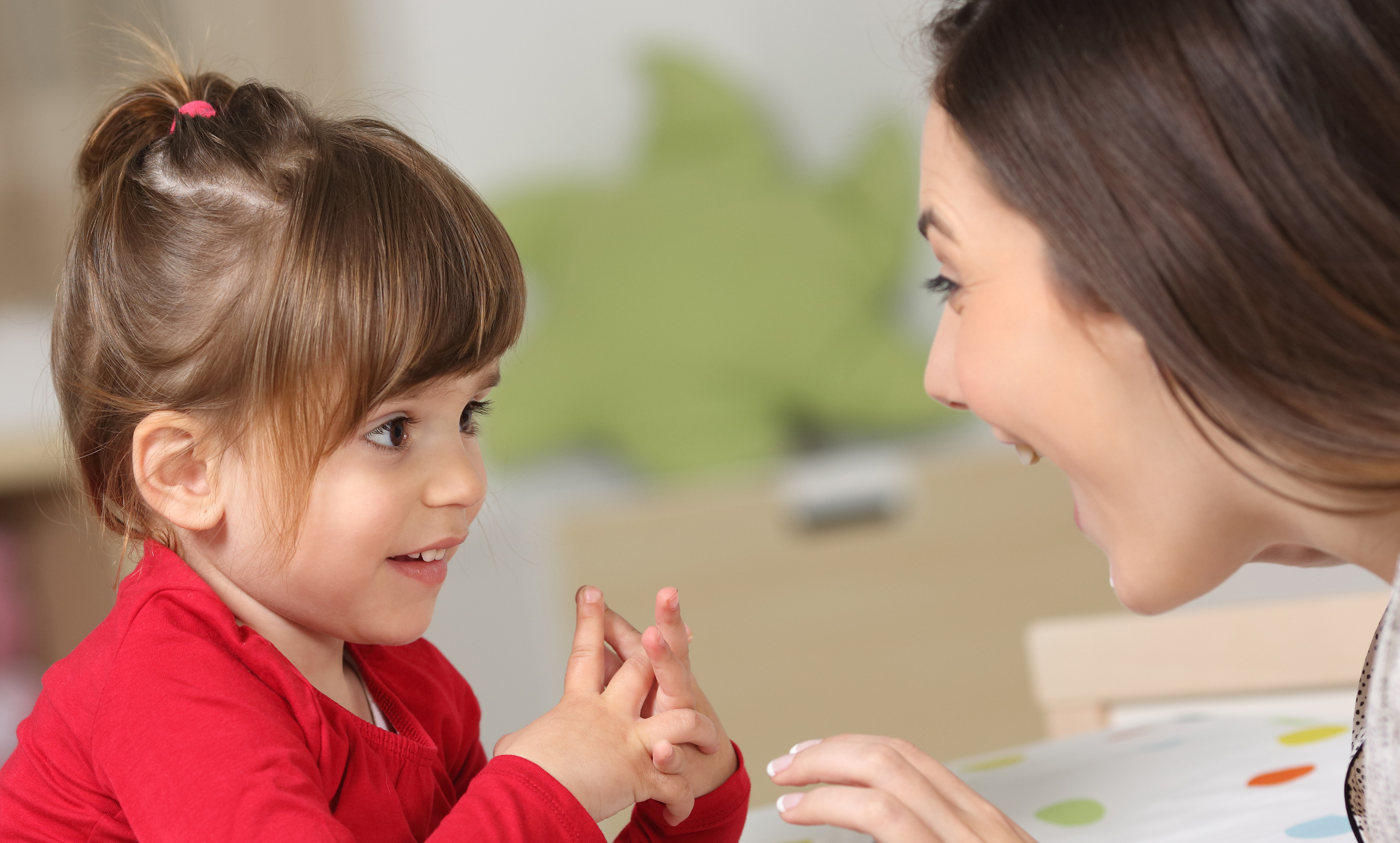
Speech pathologists provide assessment and management of communication, swallowing and feeding difficulties.
Read More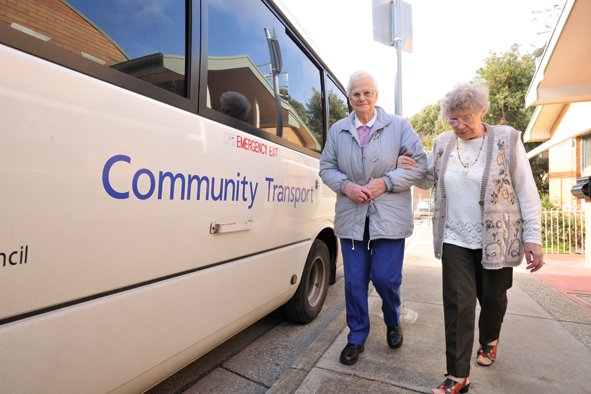
We have been offering safe and quality door-to-door transport options to our community since 1975.
Read More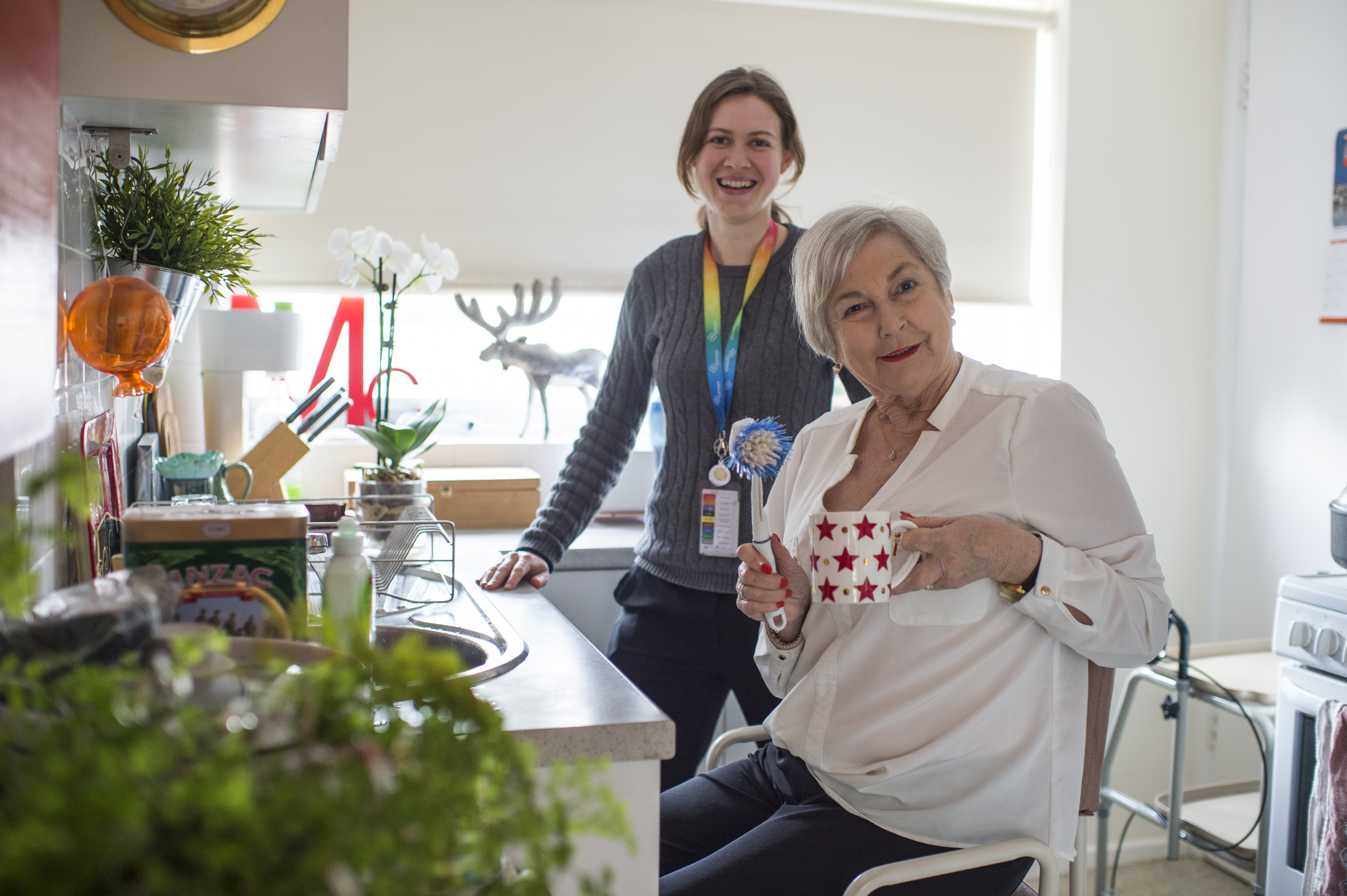
We provide Occupational Therapy to help children, adults and those experiencing mental health issues, to achieve their full potential.
Read MoreSelect from the following services